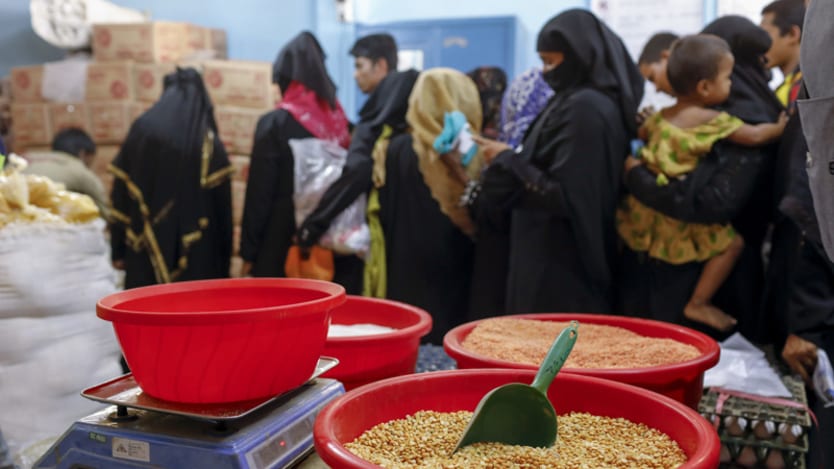
WASHINGTON — A monotonous diet of rice and pulses threatens nutrition improvement among Rohingya refugees in Bangladesh. A long-term strategy is needed if the displaced population is to move out of survival mode, according to new research from the International Food Policy Research Institute.
The survey research, published in a policy brief, shows that among a population in Cox’s Bazar overwhelmingly dependent on food aid from the World Food Programme, the child stunting rate is now 32%.
More news from Cox’s Bazar
► The midwives at the forefront of the birthing crisis in Cox's Bazar
“These numbers have improved from when children first arrived. If you go back to say, October 2017, the stunting prevalences were around 44%,” said John Hoddinott, a nonresident fellow at IFPRI and a co-author of the policy brief. “It’s not clear how much more they can improve in the future … The diets are really monotonous. Access to micronutrients and protein-rich foods particularly for children is very limited.”
WFP food rations include rice, pulses, and vegetable oil, while part of the population receives e-vouchers that allow them to purchase a wider variety of food items. Hoddinott said that the population is living on an average of US 60 cents per day — much lower than the global poverty line of $2 per day — and that around 70% of that budget is spent on food.
“What that means in practice, together with the nature of the food ration, is that in terms of calories many households are consuming a reasonable level of calories, on the order of 2400, 2500 per adult per day,” Hoddinott said. “The pulses, rice, oil probably account for 85% of the calories people are consuming on a daily basis, with very little consumption of fruits and vegetables or animal-sourced foods.”
Rohingya have arrived in several waves in Bangladesh, with an estimated 200,000 already residing in the neighboring country before the August 2017 violence that drove more than 700,000 additional people — including more than 400,000 children — from their homes in Myanmar’s Rakhine state.
The survey was conducted in October 2018 by staff from WFP, Action Against Hunger, the Bangladesh Institute of Development, and IFPRI, and examined outcomes of both earlier and later arrivals.
Among children aged 6-59 months who arrived before August 2017, 36% are chronically undernourished and 12% are acutely undernourished. Of those children arriving after August 2017, 32% are chronically undernourished and 13% are acutely undernourished.
Ruth Vargas Hill, lead economist of the poverty and equity global practice at the World Bank Group, said at the research launch in Washington that food aid has been “crucially important,” but is not enough.
“Even if humanitarian aid were sustained, if there were no donor fatigue, continued improvements in food security would not be seen,” Vargas Hill said.
The Rohingya population in Cox’s Bazar was found to have worse welfare outcomes than nearby Bangladeshis, and the refugees were more food insecure than the host community. This is partially due to the fact that the Bangladeshi government has prohibited Rohingya from working — only 10% reported having wage work inside or outside the camps. The policy restricts their ability to earn additional income and increases the chances families must turn to negative coping strategies to obtain food.
A long term strategy is needed to deal with this, Hoddinott said, and “difficult policy choices lie ahead,” according to the report: Allowing Rohingya to work would lower wages in Cox’s Bazar by about 30%, according to a simulation done by the researchers. This could build resentment of the host population by damaging living standards as well as taking political pressure off the Myanmar government to work toward return, he said.
“The international community has a window of opportunity to try and think through some of these constraints with the food assistance systems now working as well as one could reasonably expect,” Hoddinott said. “But this window of opportunity is not going to last forever.”
